For generations, humans have gazed at the stars and wondered if we are truly alone. Despite relentless efforts—radio telescopes scanning the heavens, robotic probes launched into deep space, and decades of scientific inquiry—no confirmed evidence of extraterrestrial life has surfaced.This enduring mystery, often called the Great Silence, haunts both scientists and dreamers alike. Why, in a universe so vast, have we not found any sign of aliens? To answer this, researchers and thinkers have put forth a dazzling array of hypotheses, each offering a possible clue as to why our search has come up empty.
1. The Rare Earth Hypothesis

The Rare Earth Hypothesis proposes that the conditions necessary for complex life are extraordinarily uncommon across the universe. A planet must have a stable star, protective giant planets like Jupiter, and a large moon to stabilize its tilt—ingredients that may be exceedingly rare. Scientists such as Peter D. Ward and Donald Brownlee argue that Earth’s combination of factors could be unique, making life elsewhere unlikely. Learn more.
2. Life Is Common, Intelligence Is Rare

Many scientists suggest that while simple life forms—like microbes—may be abundant throughout the cosmos, the emergence of intelligence is a far rarer leap. Evolutionary bottlenecks, such as the formation of complex brains, might only occur under very specific conditions. Evolutionary biologists point out that, even on Earth, intelligence took billions of years to arise. Read more.
3. The Fermi Paradox

The Fermi Paradox, named after physicist Enrico Fermi, captures the puzzle at the heart of our search: If intelligent extraterrestrials are likely, why is there no clear evidence? Given the vastness of the universe, we should have detected signs by now. This paradox remains a central question, fueling debate and speculation. Explore further.
4. The Great Filter
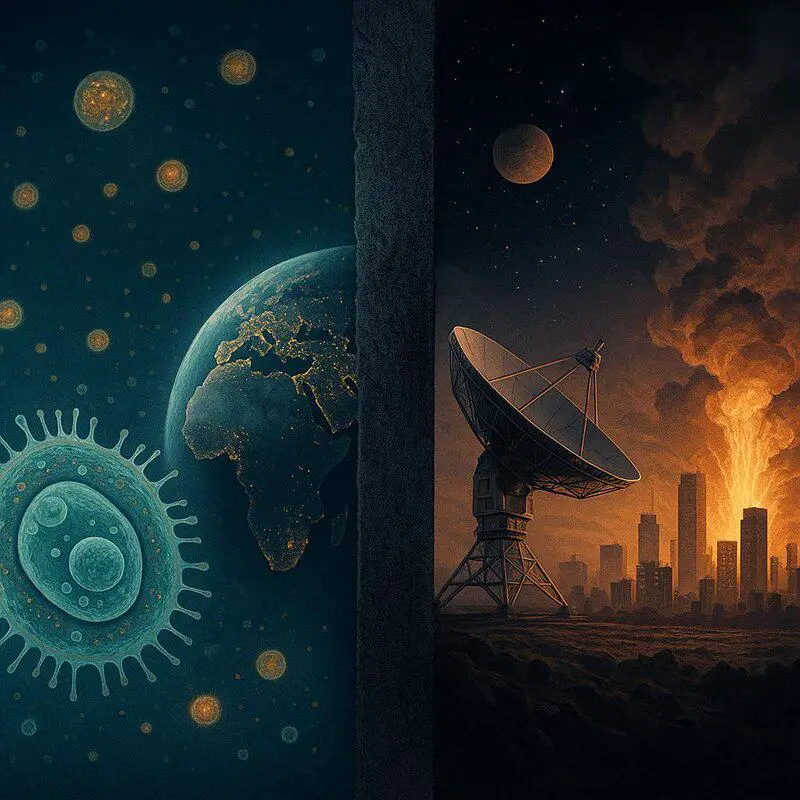
The Great Filter hypothesis suggests that there’s a critical barrier somewhere between the origin of life and the development of advanced civilizations capable of contacting others. This filter might lie in our distant past—like the leap from single-celled to multicellular life—or it could loom in our future, hinting at civilization’s tendency for self-destruction. If true, it explains why interstellar communication is so rare. Read more.
5. Aliens Are Avoiding Us (Zoo Hypothesis)

The Zoo Hypothesis proposes that extraterrestrial civilizations are purposely keeping their distance, much like zookeepers observing animals. They may avoid contact to protect us from cultural shock or to adhere to ethical standards against interference. If this is true, we could be entirely unaware of their presence, as they monitor us from afar. Learn more.
6. They’re Too Far Away

The universe is unimaginably vast, and even our closest stellar neighbors are light-years distant. Any signals or probes would require immense time—decades, centuries, or longer—to bridge the gap. This immense separation makes meaningful communication or detection incredibly challenging, keeping civilizations isolated by sheer distance. Discover more.
7. We’re Not Listening Properly

Our search for extraterrestrial intelligence relies heavily on radio frequencies and familiar technologies. But what if aliens communicate using entirely different methods—laser pulses, quantum signals, or something beyond our current imagination? Our technological focus and limitations may cause us to overlook their messages entirely. Explore SETI’s approach.
8. They Use Undetectable Communication
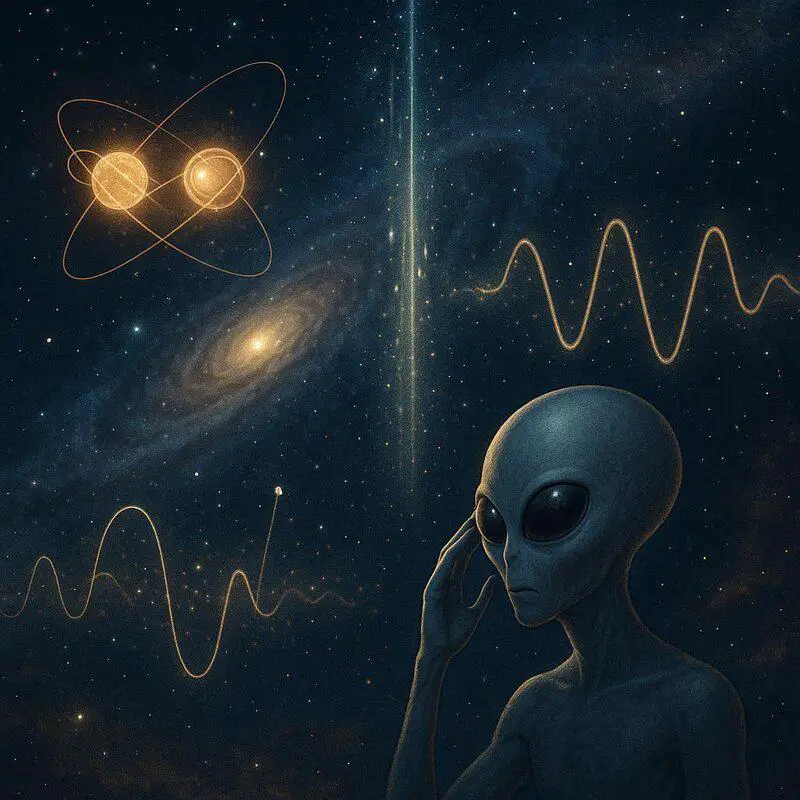
Extraterrestrial civilizations might rely on forms of communication that are completely undetectable with our current technology. Possibilities include quantum entanglement, neutrinos, or even methods based on unknown physics. If their signals are indistinguishable from natural cosmic noise or invisible to our instruments, we may never even realize they’re there. Find out more.
9. They’re Already Here (But Hiding)
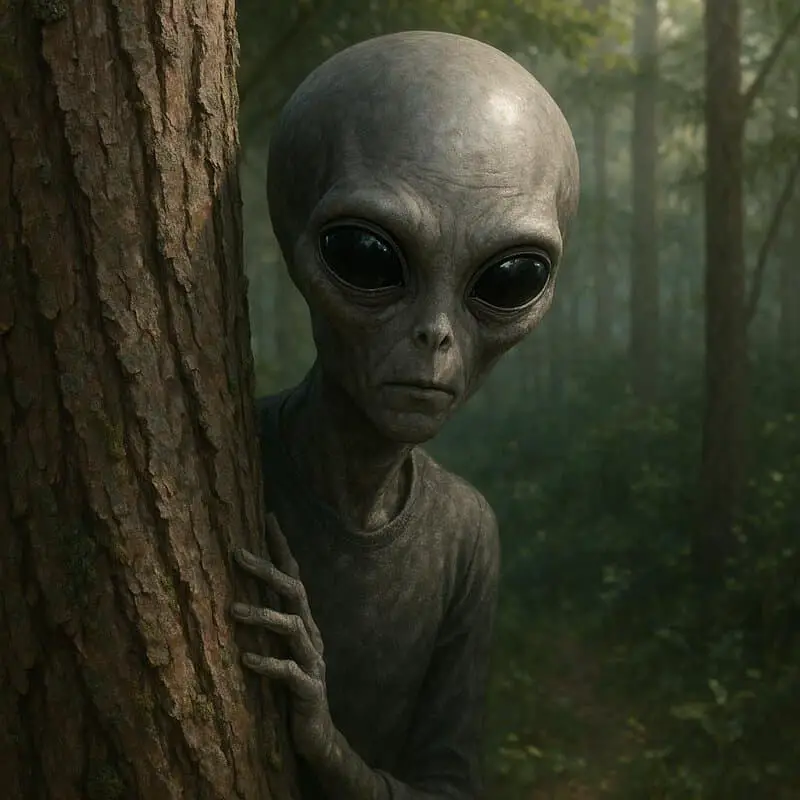
A compelling notion in science fiction and fringe theories is that aliens have already reached Earth but remain undetected—perhaps through advanced cloaking or by blending seamlessly into our environment. While no scientific evidence supports this scenario, it captivates the imagination and keeps the question alive. Read Space.com’s take.
10. Civilizations Self-Destruct

A sobering hypothesis is that advanced civilizations may inevitably destroy themselves through war, environmental catastrophe, or unsustainable resource use before reaching a stage of interstellar contact. This tragic fate could act as a universal “Great Filter,” wiping out societies just as they become capable of communication. It’s a topic of intense debate among scientists and futurists. Read more.
11. We’re Too Early

It’s possible that humanity is ahead of the curve—emerging before most other advanced civilizations in the cosmos. The universe is still relatively young, so intelligent life elsewhere might not have had enough time to evolve. We could be among the first to reach the technological threshold needed for interstellar communication. Read more.
12. Aliens Are Unrecognizable

Extraterrestrial life might be so radically different from what we expect that we simply don’t notice it. Life could be silicon-based or operate with completely unfamiliar chemistries, making it invisible to our current detection methods. Our search is shaped by Earth-bound assumptions, potentially blinding us to alien forms. Learn more.
13. Signals Are Too Weak or Brief

Some suggest that alien transmissions may be extremely weak, fleeting, or drowned out by cosmic noise. We might have simply missed them, as signals could only be detectable for brief moments—similar to the mysterious ‘Wow!’ signal detected by SETI. Timing and sensitivity may be our biggest challenges. Read about the Wow! signal.
14. Interstellar Travel Is Impractical
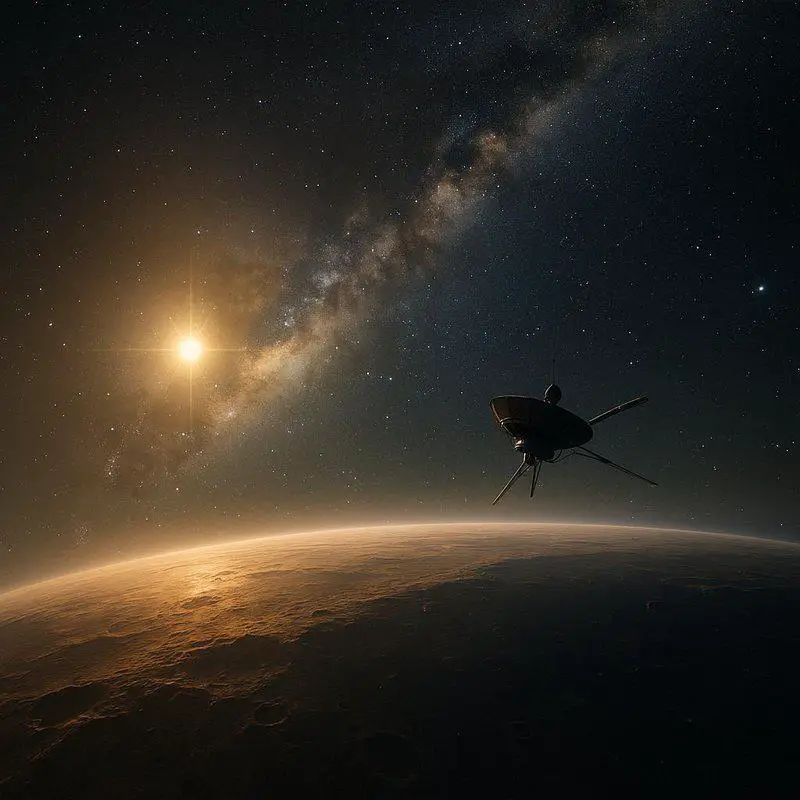
The vast distances between stars pose immense challenges, even for hypothetical advanced civilizations. The energy, time, and resources required for interstellar travel might be so great that most societies are confined to their home systems. This limitation could prevent exploration, contact, or colonization on a galactic scale. Learn more from NASA.
15. We’re Alone

Perhaps the most profound—and unsettling—hypothesis is that Earth is utterly unique in harboring intelligent life. Despite the billions of stars and planets, life may be a cosmic accident, making humanity both special and isolated. This possibility urges us to cherish and protect our planet, as we may be the universe’s only witnesses to itself. Explore the implications.
.article-content-img img { width: 100% }

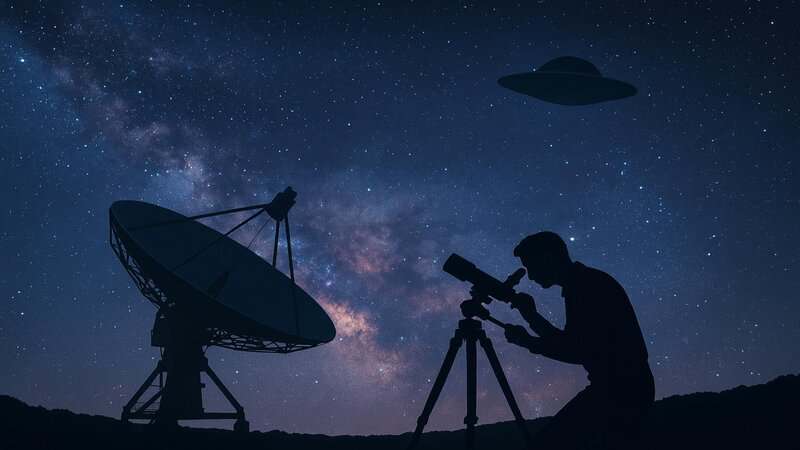

Vielleicht interessiert es Sie:
13 Extraordinary Giants Ready to Blow Your Mind! 🌍
10 Chonky Oddities That Will Leave You Speechless! 🤯
9 Unbelievable Absolute Units That Will Leave You Speechless! 🌟
10 Colossal Creatures That Will Leave You Speechless! 🐻
12 Shocking Absolute Units You’ll Have to See! 😲
12 Epic Absolute Units That Will Challenge Your Perceptions! 🔥
Uncover the 11 Ultimate Massive Oddities That Awe! 🌍
9 Unbelievable Oddities That Redefine ‚Massive‘! 🐉💎